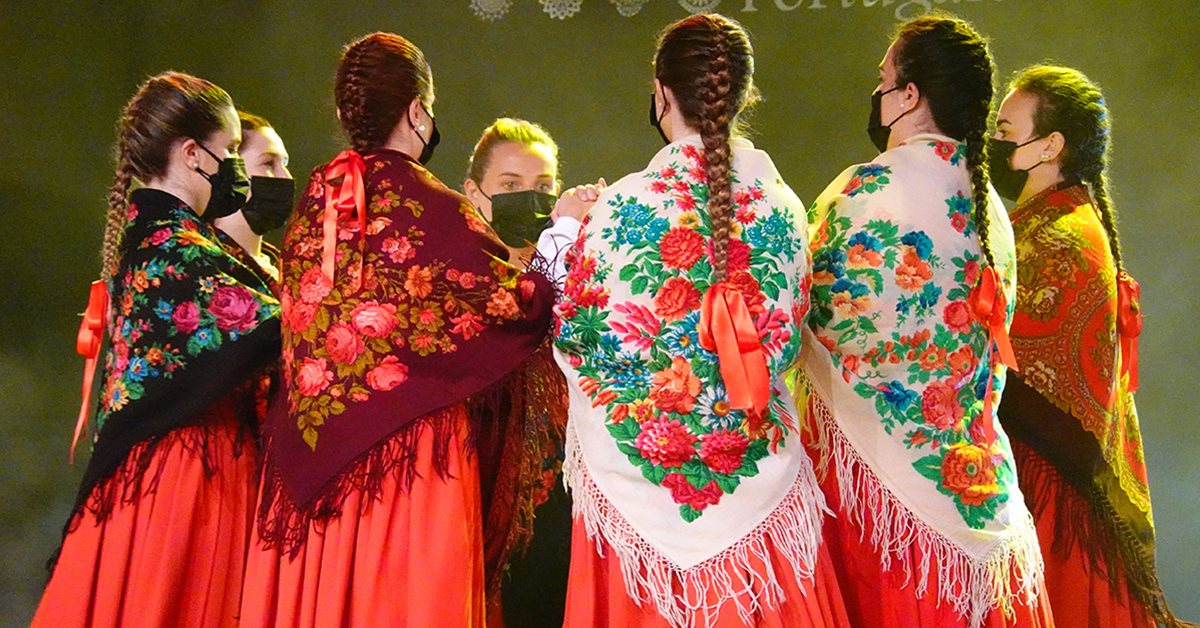Archives

Dance exhibition: Paloteado (dance of sticks and ribbons) in Novillas, a town from Zaragoza. Photo: E. X. Dueñas
It can be considered that any act that serves as entertainment, or in which other components come together —diverting, emotional, etc.— and that is performed in/with an audience is a spectacle. Moreover, clarifying that it is a folkloric one, we must make room for a wide list of celebrations that serve as a stimulus to those gathered.
The global, however, leads us to the specific. Therefore, it is essential to categorize by typology, trying to correctly manage the personal vision —albeit subjective to the signer—, and the collective, as well as the active and passive participation, existing in the event.
Even though that we are still not free of the virus (and its many variants) commonly known as COVID-19, the pandemic now just seems a harrowing time in the past. However, even though it lasted a relatively short period of time, it was a total upheaval of our lives… in a society where a large part of people’s lives is outdoors; and great importance is given to people being in close contact.
The start of the pandemic resulted in harsh restrictions being introduced here in March 2020. Right from the start, that meant that weekend and bank holiday leisure activities and celebratory events, including any type of show, celebration and religious ceremony in that regard, were completely or, in certain cases, partially cancelled.
Leisure and festivities sharply contrast with work. Any festive calendar is studded with celebrations in the public and private spheres, and a mix of elements from the past and more recent ones.
The autumn – season and cycle – gets underway with St. Michael’s Day, a real stalwart of the saints calendar and which is celebrated in Artzentales and Sestao, to name a few. Halloween leads the way into November. Even though it is an imported festivity, we must not forget scaring neighbours with carved pumpkins already existed in days of yore. On All Saints’ and All Souls’ Days, relatives and friends visit the cemeteries and that has led to the borrowed “tradition” of bringing and laying flours and wreaths on the graves.
(more…)
Anthropologists, ethnologists, ethnographers, folklorists, linguists and historians are just some of the people who have worked on preparing systems to classify and catalogue the plethora of festivities and events on the annual calendar, both in the past and in the present.
While not overlooking the rituality, authenticity, traditionality – along with many other terms ending in ‘-ity’ –, the main contribution should, undeniably, be focused on the recreational diversity, seasonality and timelessness, the historical context, the spatial spheres, the social and cultural aspects, the context, etc.








